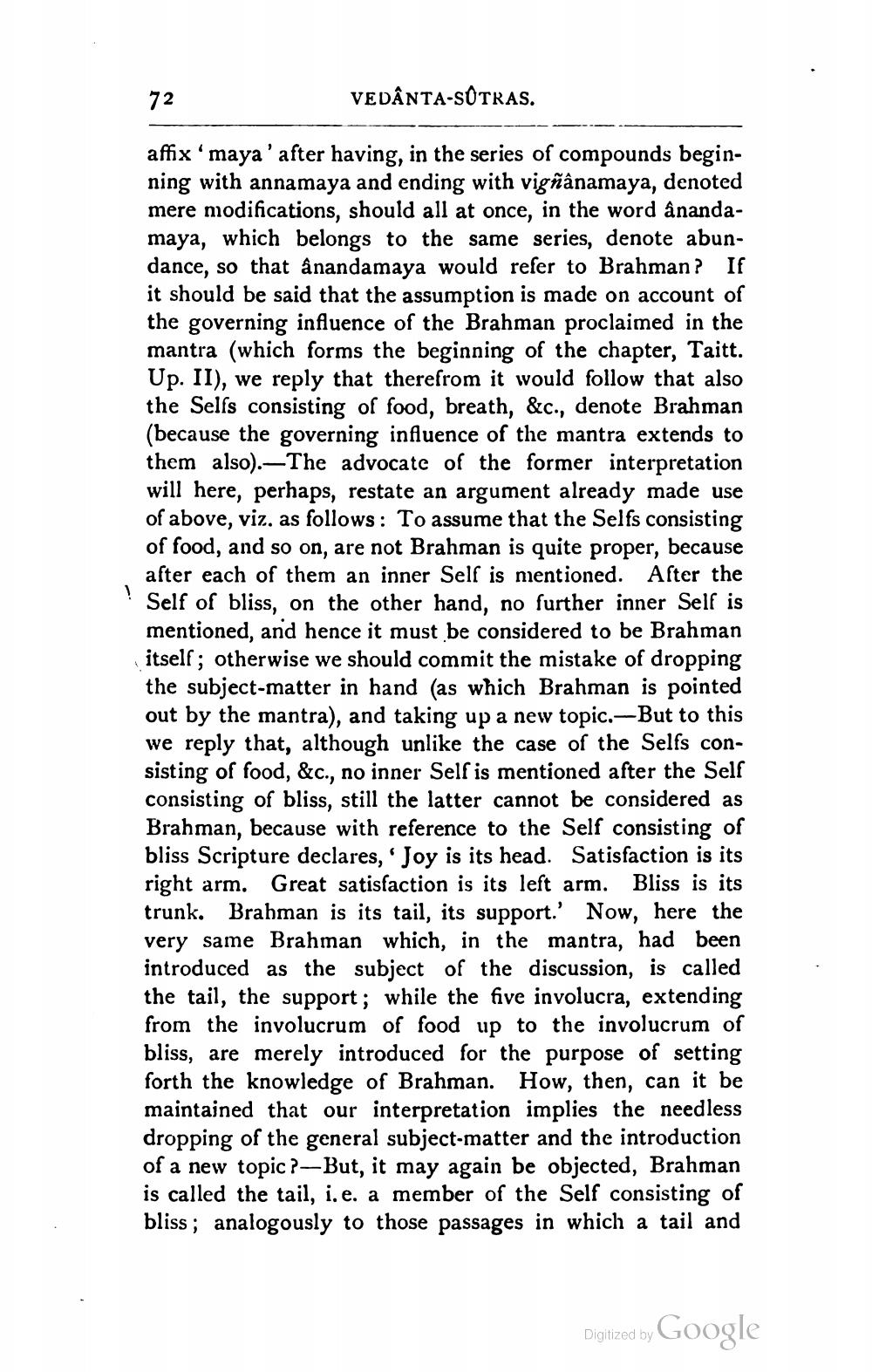________________
72
VEDÂNTA-SOTRAS.
affix'maya' after having, in the series of compounds beginning with annamaya and ending with vigñânamaya, denoted mere modifications, should all at once, in the word anandamaya, which belongs to the same series, denote abundance, so that anandamaya would refer to Brahman? If it should be said that the assumption is made on account of the governing influence of the Brahman proclaimed in the mantra (which forms the beginning of the chapter, Taitt. Up. II), we reply that therefrom it would follow that also the Selfs consisting of food, breath, &c., denote Brahman (because the governing influence of the mantra extends to them also).—The advocate of the former interpretation will here, perhaps, restate an argument already made use of above, viz, as follows: To assume that the Selfs consisting of food, and so on, are not Brahman is quite proper, because after each of them an inner Self is mentioned. After the Self of bliss, on the other hand, no further inner Self is mentioned, and hence it must be considered to be Brahman itself; otherwise we should commit the mistake of dropping the subject-matter in hand (as which Brahman is pointed out by the mantra), and taking up a new topic.-But to this we reply that, although unlike the case of the Selfs consisting of food, &c., no inner Self is mentioned after the Self consisting of bliss, still the latter cannot be considered as Brahman, because with reference to the Self consisting of bliss Scripture declares,' Joy is its head. Satisfaction is its right arm. Great satisfaction is its left arm. Bliss is its trunk. Brahman is its tail, its support.' Now, here the very same Brahman which, in the mantra, had been introduced as the subject of the discussion, is called the tail, the support; while the five involucra, extending from the involucrum of food up to the involucrum of bliss, are merely introduced for the purpose of setting forth the knowledge of Brahman. How, then, can it be maintained that our interpretation implies the needless dropping of the general subject-matter and the introduction of a new topic ?—But, it may again be objected, Brahman is called the tail, i.e. a member of the Self consisting of bliss; analogously to those passages in which a tail and
Digitized by
Digized by Google




